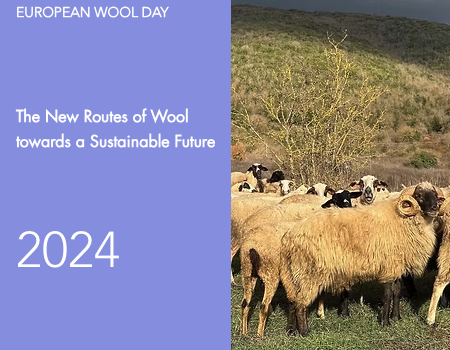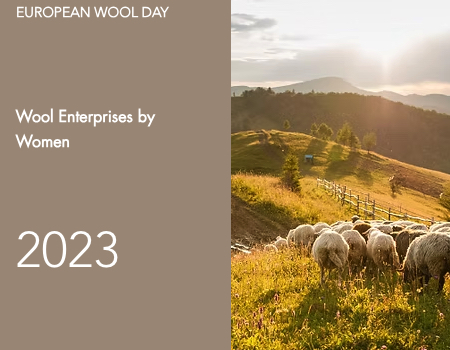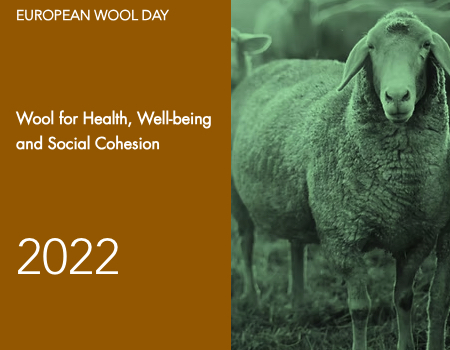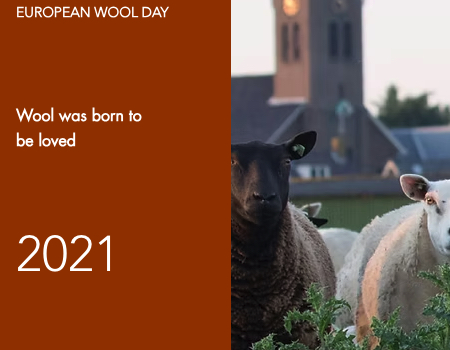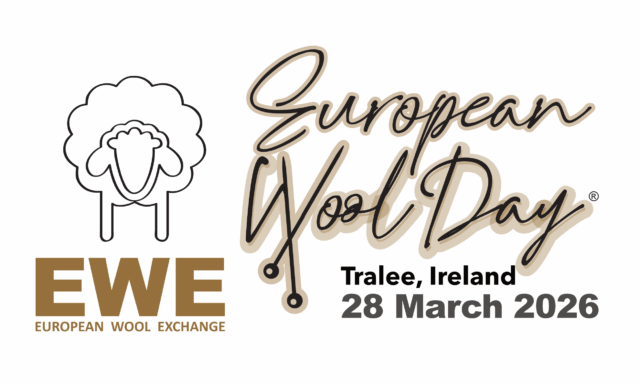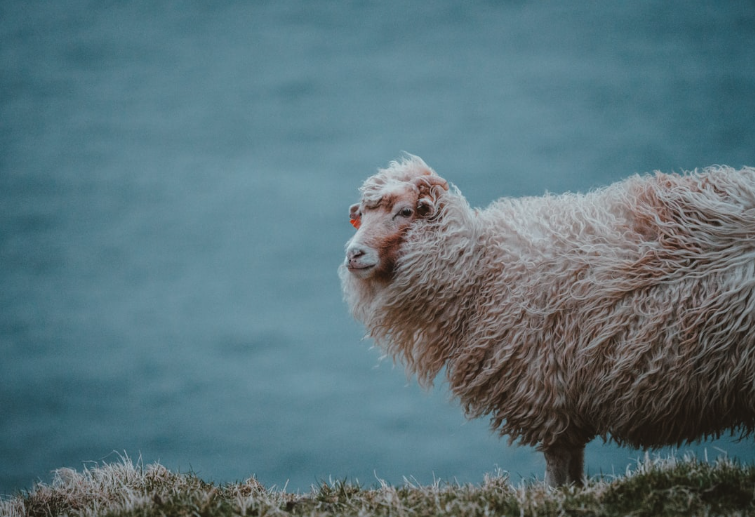
Wool for Health
5th EUROPEAN WOOL DAY
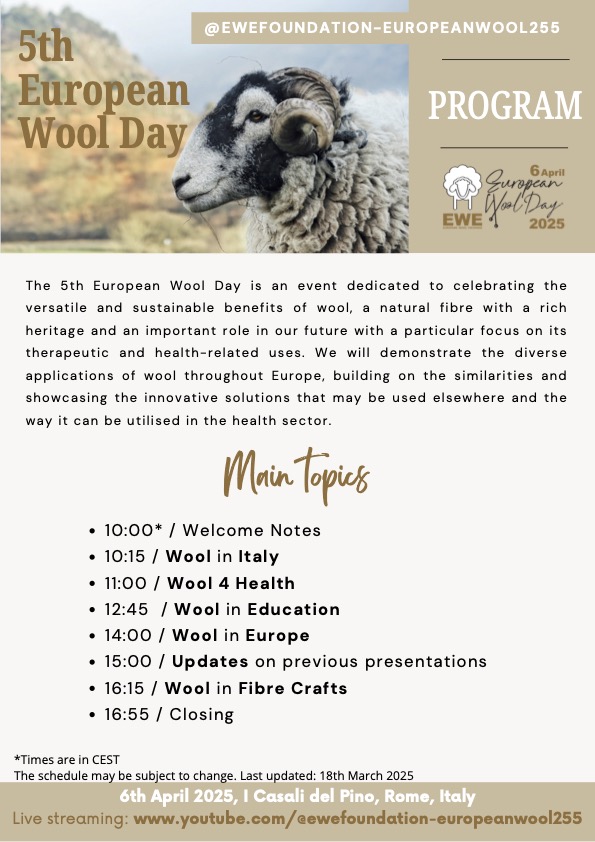
Program
The focus this year is:
Wool for Health
The focus theme, Wool4Health will highlight wool’s natural properties that support mental, physical, and emotional wellbeing, and will explore therapeutic knitting and the use of wool in health and wellness practices, a timely and relevant subject given the growing interest in personal well-being, sustainable living and the interconnectedness between natural materials and humans.
We will celebrating the versatile and remarkable health benefits of wool, a natural fibre with a rich heritage and an important role in our future with a particular focus on its therapeutic and health-related uses in this year’s edition. We will demonstrate the diverse applications of wool throughout Europe, building on the similarities and showcasing the innovative solutions that may be used elsewhere and the way it can be utilised in the health sector. The event will bring together wool processors, industry professionals, knitters, designers, therapists, health experts, and the public to share knowledge, showcase products, raise awareness about the health benefits of wool and foster a deeper understanding of how wool can be utilized for health and well-being.
Through collaboration, education and by fostering a deeper understanding of the connection between wool stakeholders, this event aims to inspire more conscious choices that enhance well-being and promote a healthier environment. From the soothing properties of woollen garments to the meditative effects of knitting, European Wool Day will serve as both an educational and celebratory occasion for all things wool.
Replay by speaker/presenter/talk
Welcome Notes
- Alberto Costa, EWE Foundation ( 0:19)
- Ivana Appolloni, Gomitolorosa: ( 6:06)
- Ilaria Venturini Fendi: ( 10:35)
Wool in Italy ( 15:45)
- The Fratelli Piacenza Woollen Mill by Vasiliy Piacenza: ( 17:02)
- Washing Wool is the Problem in Italy! In Gandino’s Story is the Solution by Filippo Sevalli ( 23:00)
- Sustainably Processed Waste Wool Fiber-Reinforced Bio-composites for Agriculture and Packaging Applications by Dr. Marina Zoccola, Italian National Research Council ( 39:50)
- Woolshed: A New Era for Alpine Wool by Gabriele Monti, IUAV University in Venice and Zoe Romano, Centro Consorzi ( 50:08)
- Wool Pellet Fertiliser by Chiara Spigarelli, Agrivello ( 59:43)
Wool 4 Health
- Wool 4 Health by GomitoloRosa ( 1:04:10)
- Therapeutic Knitting at a Hospital for Oncology in Hungary by Dóra Jamniczky-Kaszás, EWE Foundation ( 1:27:10)
- Therapeutic Knitting – Using Knitting as Part of Talking Therapy by Dr Mia Hobbs, Creative Restoration, UK ( 1:35:24)
- Healing through Wool Felting by Sharon Wells, Ireland ( 1:56:15)
- From Yarn to Strength: My Story of Knitting, Cancer, and the Beauty of Local Wool by Marija Bašić, Pletenje, Croatia ( 2:16:16)
- The Secret Power of Knitting by Gabriele Brandhuber, Textilportal and AUTwool, Austria ( 2:22:05)
- Wool, a Way of Life by Athina Baroufi, Greece ( 2:33:33)
- 12 Sheep by John Connell, Ireland ( 2:45:45)
- Knitting for Newborn Sierra Leonean babies by Milla 91 Foundation ( 2:52:35)
Wool in Education
- Sustainable Practices: Put Wool in the Hands of Young Learners by Elizabeth Okeyele, Tunnizze creation, NIgeria ( 3:01:01)
- Wool Processing in (Waldorf) Schools by Mandula Méhes, Ariadné Art, Hungary ( 3:22:18)
- “Wool Makes Sense!” – Teaching Social Skills through Fiber by Anja Sammon, Secondary School of Coláiste Muire Máthair, Ireland ( 3:32:16)
- The Role of Weaving Education in Institutional Settings and the Development of Effective Academic Programs by Stella Vlachopulu, University of Western Macedonia, Greece ( 3:50:30)
- Healing through Handwork; Woolen Threads by Elizabeth Seward, Waldorf Handwork Educators, USA ( 4:06:50)
Wool in Europe
- The Future of Fibre: Sustainability, Local Markets, and the Next Generation by Andrew Carpenter, Belfast Mini Mills, Canada ( 4:27:30)
- WOOLBAU – Raw Wool for Reinforcement by Folke Köbberling, Technical University Braunschweig, Germany ( 4:34:00)
- The Fabric of (Human) Life by Saidhbhín Gibson, Ireland ( 4:40:50)
- Wool and Cheese – The Treasures of Pag by Ana Žunić, Volim Vlašići and Martina Pernar Skunca, Association of Paski sir Cheese Producers, Croatia ( 4:52:00)
Updates from previous presentations
- Turning Wool into Gold for Construction, Cosmetics and Agriculture by Cristian Mercioniu, Eco PartnerSheep, Romania ( 5:06:40)
- Wool Contributes to Wellbeing by Sandra King, Irish Fibre Crafters, Ireland ( 5:27:10)
- All Colors of Montenegro – Sheep Wool Dyed with Natural Dyes by Martina Glogar, Ana Sutlović, Iva Brlek and Ivana Čorak, University of Zagreb Faculty of Textile Technology, Croatia Loop by Loop, Stitch by Stitch and Woolen Warmers for Health and Beauty by Sofija Đukanović, Jelena Đukanović, and Ana Sutlović, Montenegrin Wool Institute Niksic ( 5:37:11)
- Summer School: Local Wool Processing for Wellness and Creative Regeneration by Livia Sordini, Sara Freschi and Flaminia Bisceglia, Coordinamento Tessitori, Italy ( 5:55:59)
- Empowering Local Communities through Creative Wool Workshops and Exhibitions Inspired by Local Biodiversity by Panagiota Koutsoukou, EcoMuseum Zagori, Greece ( 6:06:10)
- Wool in Everyday Life for Skin Health and Well-being by Jasminka Gršković, Blue Sheep Handmade, Croatia ( 6:16:10)
- Sustainable Fashion: Denim + Wool by Anita Stefanovska, Secondary Vocational School Taki Daskalo, North Macedonia ( 6:20:48)
- Rethinking the Education and Practice of Physiotherapy towards Planetary Health through the Use of Wool by Berta Paz-Lourido, University of the Balearic Islands, Spain ( 6:26:28)
Wool in Fibre Crafts
- Crafty Wool Crafters from Slovenia by Lucija White, Institute for Agriculture and Forestry Nova Gorica ( 6:32:47)
- Manual Wool Therapy – Feel Slovenia by Handicraft Section of Sheep and Goat Breeders Association of Idrija and Cerkno ( 6:38:55)
- Wool Route: Weaving Experiences by Mireia Cabrero Calmet, Fundación Ecoagroturismo, Spain ( 6:44:14)
- Woven Handmade Cardigan by Eirini Vekri and Evi Pantazi, Weaving Class of Saint Athanasios and Association of Mainites Andros, Greece ( 6:48:38)
- European Wool4Health Awards 2024 ( 6:52:30)
- Rural Women, Nature and Therapy by Asociacion El ECO, Spain ( 6:56:20)
- Circular Economy for the Recovery and Revaluation of Wool in Teruel by Marta Fernández, Spain ( 7:03:56)
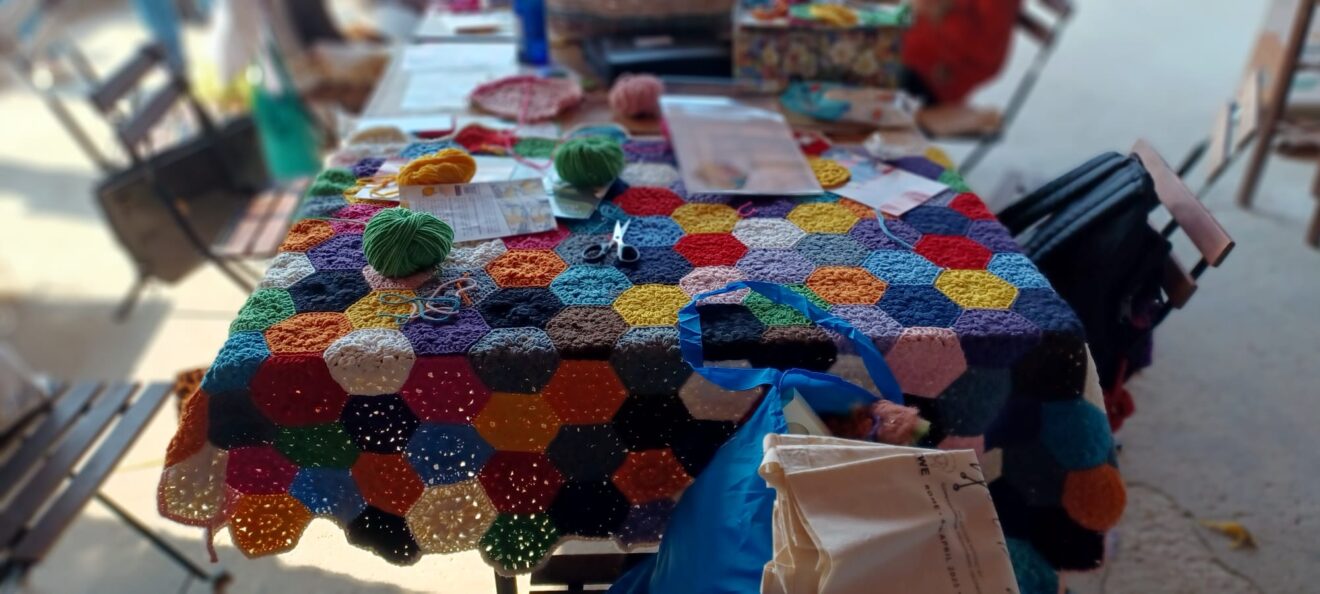
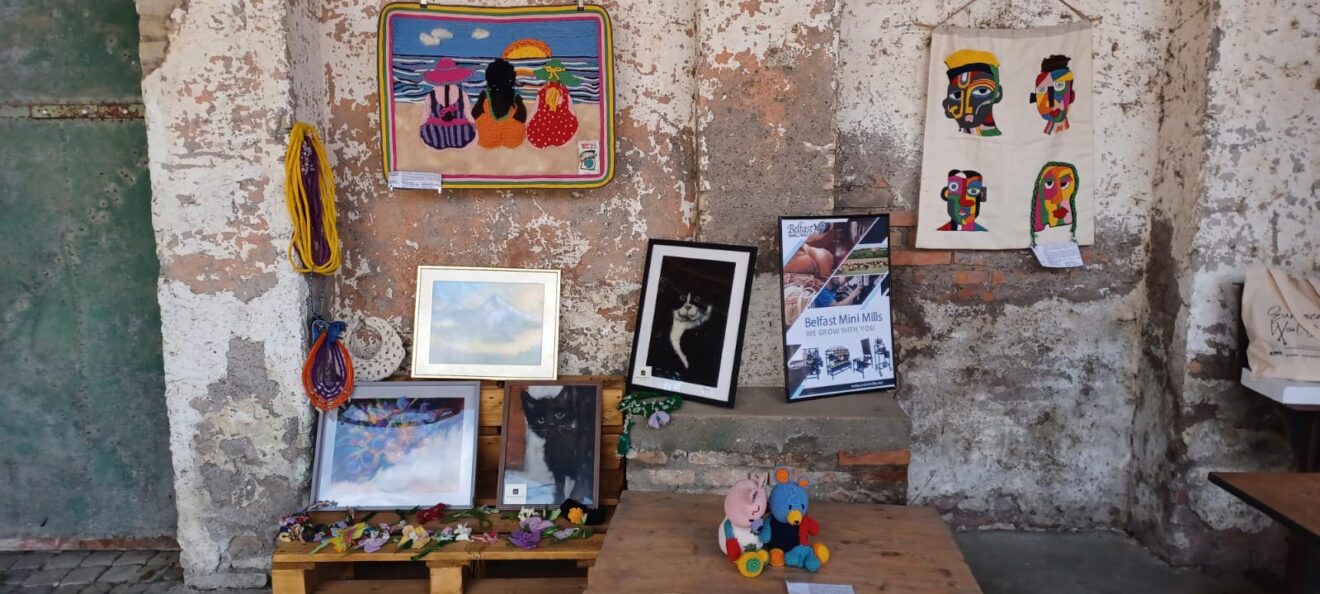
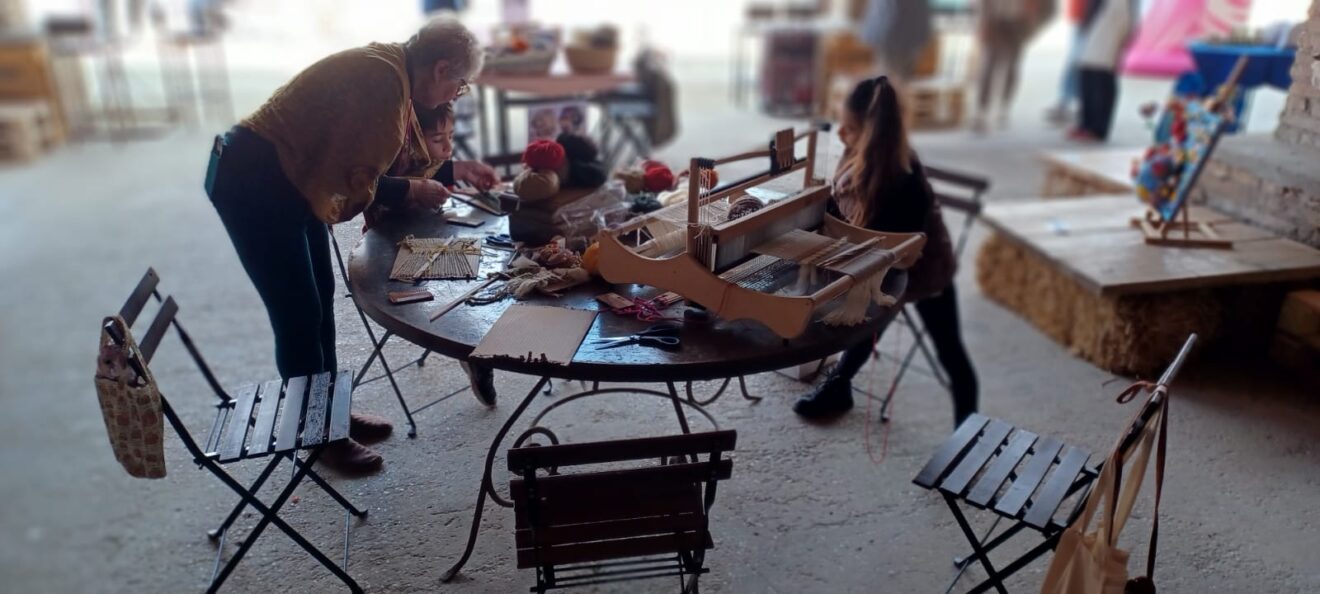
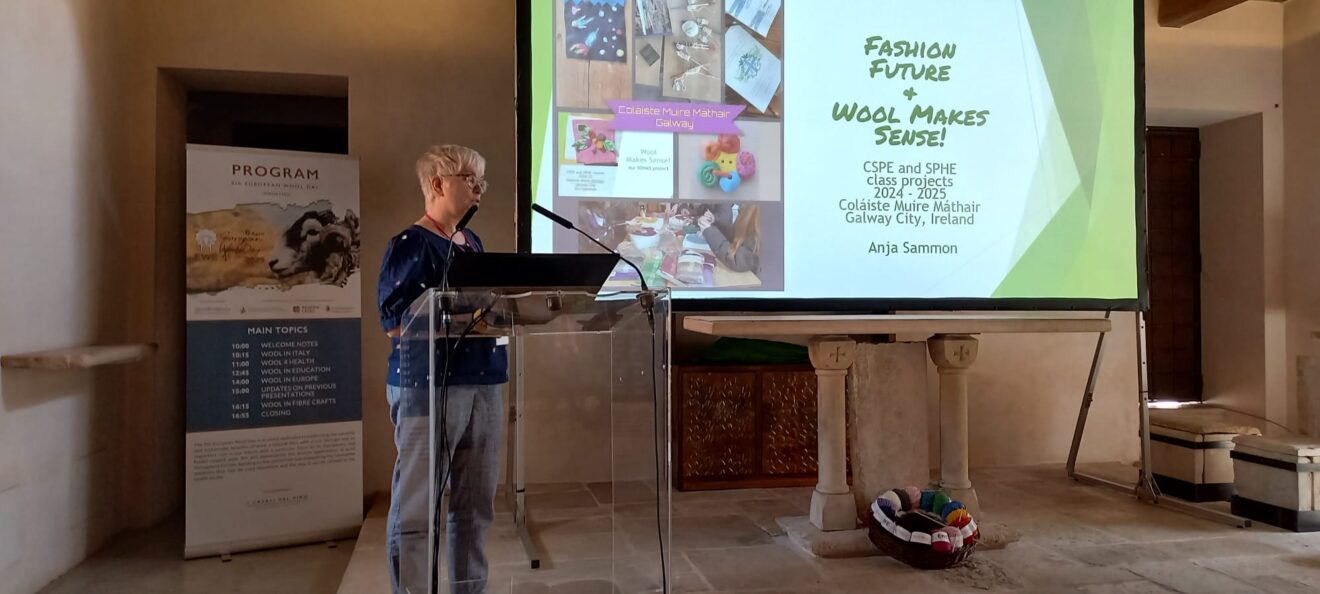
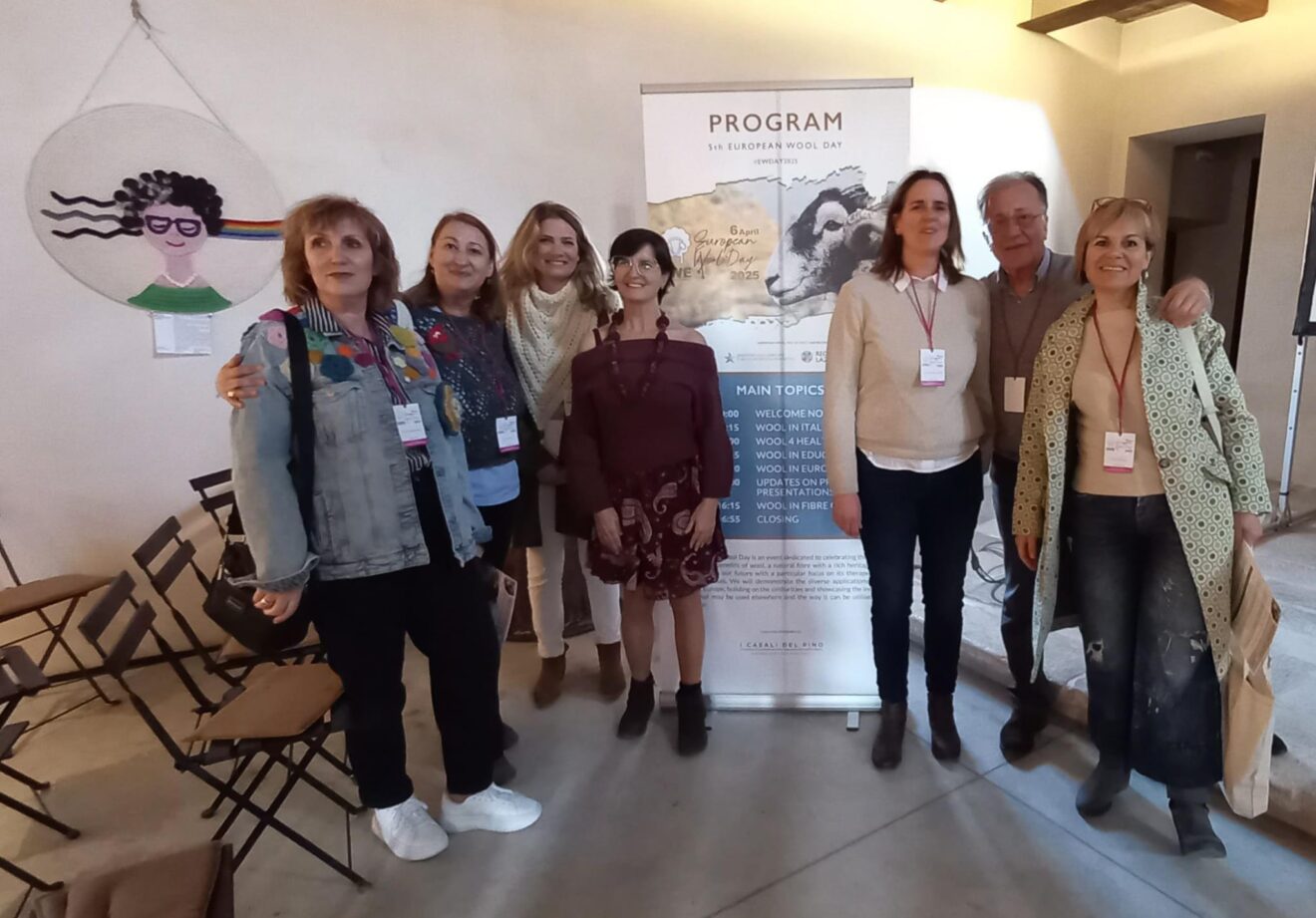
5th European Wool Day
It’s an event dedicated to celebrating the versatile and sustainable benefits of wool, a natural fibre with a rich heritage and an important role in our future with a particular focus on its therapeutic and health-related uses in this year’s edition. We will demonstrate the diverse applications of wool throughout Europe, building on the similarities and showcasing the innovative solutions that may be used elsewhere and the way it can be utilised in the health sector.
Come to Rome for this extraordinary event taking place at I Casali del Pino, Ilaria Venturi Fendi’s organic farm just on the outskirts of Rome to celebrate wool, with special focus on its use for mental health and well-being. Entry is free of charge.
Presentations and workshops
We’ll not only have presentations, but demonstrations and hands-on workshops held by wool lovers all over Europe, sharing their experiences and best practices suitable for children and adults including wool washing, dyeing, spinning, felting, crochet, weaving and painting with wool.
On April 6, 2025, the 5th European Wool Day will be broadcasted online, but there will also be local events, so you are welcome to attend in person and take advantage of the workshops, exhibits, talks, and debates that are happening in Rome, Italy.
Workshops will be running from 10am to 4:30pm, including wool washing, dyeing, spinning, felting, crocheting and weaving.
Header photo by Annie Spratt

